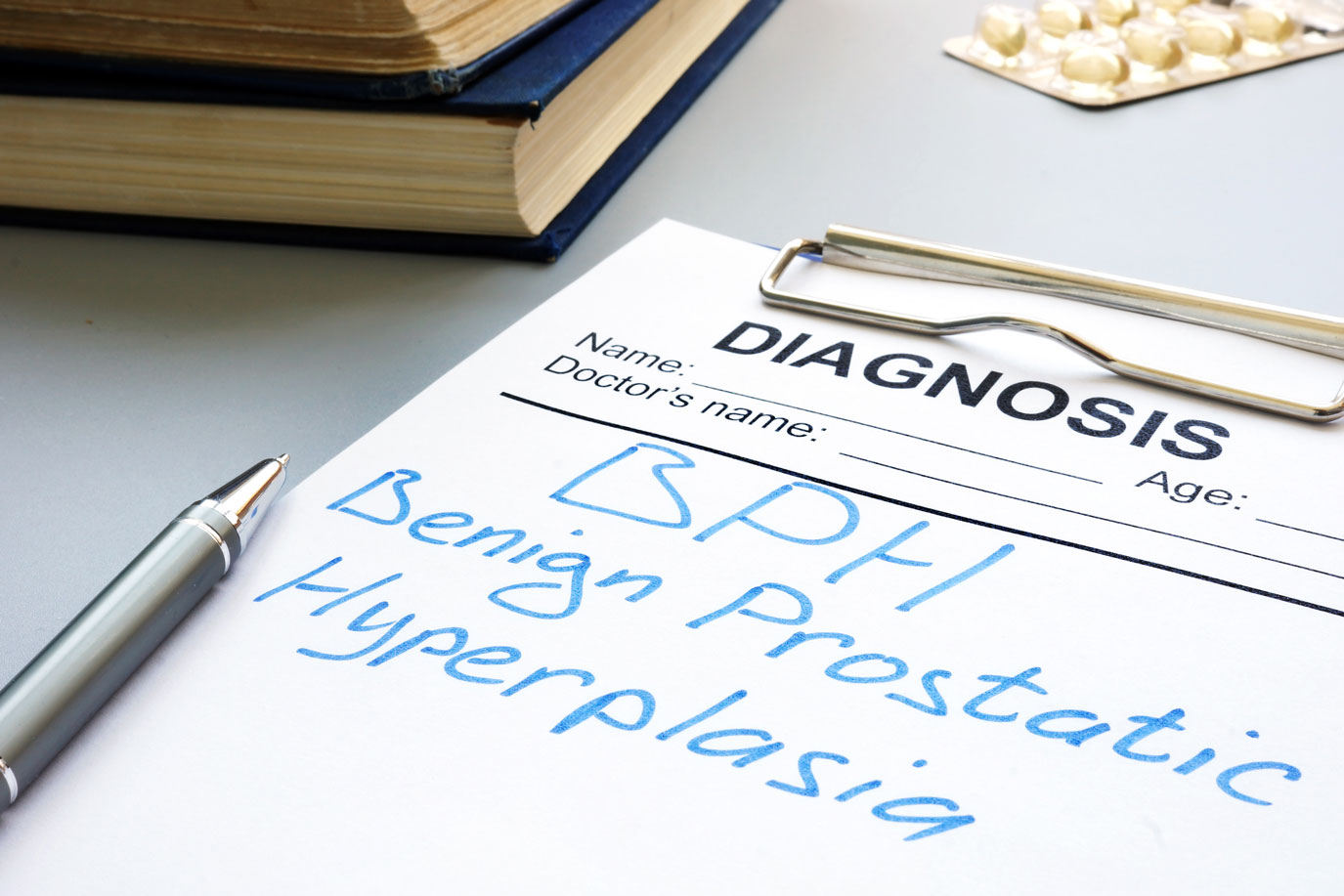Benign Prostate Gland Enlargement (BPH)
Benign prostatic hyperplasia (BPH), also called prostate gland enlargement, is a common age associated condition. An enlarged prostate gland may cause progressively uncomfortable urinary symptoms, such as blocking of urine flow out of the bladder, bladder stones, bladder infections and urinary retention needing catheterization. It can also cause urinary tract or kidney problems, The severity of symptoms varies, but symptoms tend to gradually worsen over time. There may be a direct and measurable effect on a man’s quality of life, such that normal tasks are made much more difficult relating to the inability to effectively empty the bladder.

Common signs and symptoms of BPH include:
- Frequent or urgent need to urinate
- Increased frequency of urination at night (nocturia)
- Difficulty starting urination
- Weak urine stream or a stream that stops and starts (intermittency)
Dribbling at the end of urination - Inability to completely empty the bladder with repeated trips to the bathroom needed for small amounts of urine evacuation
Less common signs and symptoms include:
- Urinary tract infection
- Inability to urinate completely ( acute urinary retention)
- Blood in the urine

Causes:
The prostate gland is located in the pelvis below the bladder and above the pelvic floor. The urethra passes through the center of the prostate. When the prostate enlarges, it begins to block urine flow, causing men to have urinary symptoms. Most men have continued prostate growth throughout life. In many men, this continued growth enlarges the prostate enough to cause urinary symptoms or to significantly block urine flow.
Risk Factors:
Risk factors for prostate gland enlargement include: age, family history, diabetes and other metabolic diseases, as well as poor lifestyle habits such as smoking.
Complications:
Complications of an enlarged prostate can include:
- Sudden inability to urinate (urinary retention). You might need to have a tube (catheter) inserted into your bladder to drain the urine. Some men with an enlarged prostate need surgery to relieve urinary retention.
- Urinary tract infections (UTIs). Inability to fully empty the bladder can increase the risk of infection in your urinary tract. If UTIs occur frequently, you might need surgery to remove part of the prostate.
- Bladder stones. These are generally caused by an inability to completely empty the bladder. Bladder stones can cause infection, bladder irritation, blood in the urine and obstruction of urine flow.
- Bladder damage. A bladder that hasn’t emptied completely can stretch and weaken over time. As a result, the muscular wall of the bladder no longer contracts properly, making it harder to fully empty your bladder.
- Kidney damage. Pressure in the bladder from urinary retention can directly damage the kidneys or allow bladder infections to reach the kidneys.
Most men with an enlarged prostate don’t develop these complications. However, acute urinary retention and kidney damage can be serious health threats.
Having an enlarged prostate is not believed to increase your risk of developing prostate cancer
TREATMENTS & CONDITIONS
Surgeries & Therapies for BPH
BPH or enlarged prostate can lead to significant urinary distress in men. Dr. Feifer specializes in the medical and surgical management of ...

Urinary Obstruction
Ureteropelvic junction (UPJ) obstruction occurs in the upper urinary. Most often, it is blocked at the renal pelvis. This is where the kidney attaches to one of the ureters

Surgery, Medical Management of BPH
When BPH needs to be treated, the first thing that is trying is a modification of lifestyle factors. There may be food

Benign Prostate Gland Enlargement (BPH)
Benign prostatic hyperplasia (BPH), also called prostate gland enlargement, is a common age associated condition. An


